With Chicago State standing as the lone remaining head coaching vacancy in college basketball, the coaching carousel finally appears on the verge of stopping — more than three months after the 2020-21 season ended and nine months after Penn State parted ways with Pat Chambers to start the merry-go-round.
Toward the end of the season, there were questions about whether the carousel would really be all that busy, given the financial issues brought on by the coronavirus pandemic. Those questions were answered emphatically: There were 57 coaching changes, including 13 from the top six leagues.
Before another job opens, let’s go through every one and figure out the biggest challenge for each new coach.
New coaches in top conferences (and other high-profile jobs) | Other D-I hires
New coaches in top conferences (and other high-profile jobs)
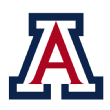
Arizona Wildcats: Tommy Lloyd
Biggest challenge: Getting to the other side of the NCAA investigation. Arizona self-imposed a postseason ban for last season, but the Wildcats still have no resolution on their case. They received their notice of allegations last October and requested a referral to the recently created Independent Accountability Resolution Process. The cloud hanging over the program has no doubt impacted recruiting — and also played a part in the departure of Sean Miller.
Early returns: Lloyd was able to land a trio of transfers this offseason, and also kept several key rotation pieces from last season’s team. Moving forward, Arizona already landed a commitment from ESPN 100 7-footer Dylan Anderson and had guards Shaedon Sharpe and Collin Chandler on campus in June. The NCAA issues are obviously going to be used against the Wildcats in recruiting, however, and there’s no timeline for a resolution.
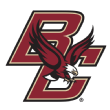
Boston College Eagles: Earl Grant
Biggest challenge: Simply making Boston College remotely competitive. Jim Christian received plaudits in 2018 for guiding the Eagles to a 19-16 record and two ACC tournament wins — but that’s essentially the peak of Boston College basketball over the past decade. The Eagles haven’t gone to the NCAA tournament since 2009. It’s the toughest job in the ACC.
Early returns: The transfer portal didn’t go Grant’s way this spring. Five of the Eagles’ top six scorers opted to depart, including four entering the transfer portal. Grant brought Brevin Galloway (15.0 PPG) with him from Charleston, but year one looks like a struggle.

Cincinnati Bearcats: Wes Miller
Biggest challenge: Cleaning up the mess. Cincinnati fired John Brannen after just two seasons following an investigation into the program. Six players entered the transfer portal in the first three days after the season, before the school announced it was launching an investigation following the mass exodus and reports about Brannen’s treatment of the players.
Early returns: Mike Saunders and Mason Madsen withdrew their names from the portal following Miller’s hiring, but all-conference guard Keith Williams opted to enter the portal just before the July 1 deadline. Most of the reloading came via the portal, with Miller bringing a couple of guys with him from UNCG and also landing three Power 5 transfers: John Newman (Clemson), Abdul Ado (Mississippi State) and Ody Oguama (Wake Forest).
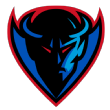
DePaul Blue Demons: Tony Stubblefield
Biggest challenge: Keep kids home for college. It’s been the narrative for years when it comes to DePaul. One Big East coach contended to me in the spring that Quentin Richardson (who departed in 2000) was the last big-time kid from Chicago to stay home and play for DePaul. Chicago is one of the most fertile cities in the country for high school talent, but the Blue Demons have historically struggled to bring those players into the fold.
Early returns: We haven’t seen much from Stubblefield on the high school recruiting trail just yet, but he did well in the transfer portal. Brandon Johnson was an all-conference player at Western Michigan before becoming a rotation player at Minnesota; Yor Anei has shown flashes at both Oklahoma State and SMU; Tyon Grant-Foster was considered the best junior college prospect in the country before going to Kansas; and Jalen Terry was a top-100 recruit before playing one year at Oregon. There’s some talent on the roster.

Indiana Hoosiers: Mike Woodson
Biggest challenge: Return Indiana to blueblood status. It’s arguably the biggest challenge on this list, and perhaps it’s impossible. But the last time Woodson was involved in college basketball was 1980, when he was finishing his playing career as a Hoosier in the middle of the glory years under Bob Knight. IU won a title in 1976, another one in 1981 and a third one in 1987. Back in Bloomington, Woodson takes over a program that hasn’t made the NCAA tournament since 2016 and has been past the Sweet 16 once since 1993. Indiana isn’t considered one of the truly elite programs in college basketball right now, either on the court or on the recruiting trail.
Early returns: Woodson did an impressive job of constructing a roster competitive enough for an NCAA tournament bid in year one. Armaan Franklin, Al Durham, Joey Brunk and Jerome Hunter departed via the transfer portal, but Xavier Johnson (Pittsburgh), Miller Kopp (Northwestern) and Michael Durr (South Florida) came the opposite direction. Indiana also landed top-25 senior Tamar Bates and had ESPN 100 juniors Kyle Filipowski and Jalen Hood-Schifino on campus.
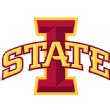
Iowa State Cyclones: T.J. Otzelberger
Biggest challenge: Be more South Dakota State than UNLV. Otzelberger had plenty of success at South Dakota State, playing up-tempo basketball, shooting a lot of 3-pointers and winning a lot of games. At UNLV, the tempo slowed, the 3-pointers didn’t fall and Otzelberger moved on after two seasons. If Otzelberger can replicate what Fred Hoiberg did in Ames — pace and space with transfers — he has a chance to move up the Big 12 standings.
Early returns: Otzelberger is clearly following the Hoiberg model. He has already brought in six transfers, including four Power 5 names led by Izaiah Brockington from Penn State. The Cyclones’ 2022 class is also off to a strong start, with Otzelberger landing four-star guard Eli King and local point guard Tamin Lipsey. I would expect Iowa State to hit the portal consistently every spring, too.
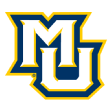
Marquette Golden Eagles: Shaka Smart
Biggest challenge: Patience. Smart enters an interesting situation with the Golden Eagles. He’s a big name with big expectations at a school with big money. But the team’s top five scorers from last season are gone, including the late departure of former McDonald’s All-American Dawson Garcia. He also lost ESPN 100 recruit Jonas Aidoo, who ended up at Tennessee. There could be some growing pains early on for Smart in the Big East.
Early returns: As mentioned, the offseason wasn’t perfect for Smart. But he did reload a bit by adding elite defender Darryl Morsell from Maryland and a promising perimeter scorer in Tyler Kolek from George Mason. Justin Lewis is garnering some early 2022 NBA draft hype, so there is a good nucleus for Smart.
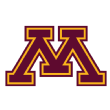
Minnesota Golden Gophers: Ben Johnson
Biggest challenge: Lock up in-state prospects. Minnesota has had more success than DePaul at keeping talented kids home for college, but the pressure is higher with the Golden Gophers. It’s possible — Tubby Smith was able to keep some kids home, and Richard Pitino did keep Amir Coffey home. But guys like Tyus Jones, Rashad Vaughn, Reid Travis, Tre Jones, Chet Holmgren, Jalen Suggs and others all went elsewhere.
Early returns: Johnson went hard in the transfer portal after getting the job, and brought a couple Minnesota natives back home for college. Jamison Battle (George Washington), Parker Fox (Division II Northern State) and Sean Sutherlin (New Hampshire) were productive players at their previous spots, and they’re all opting to go back to their home state. In all, six double-figure scorers signed with Minnesota via the transfer market.
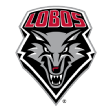
New Mexico Lobos: Richard Pitino
Biggest challenge: Make the Lobos competitive again. Even during down years, New Mexico is one of the top three jobs in the Mountain West. The Lobos have a great environment and home-court advantage at The Pit, and their fan base is loyal. But they haven’t been in the mix near the top of the league in a long time. Their last NCAA tournament appearance was in 2014 and they haven’t won a league title since 2013.
Early returns: It’s highly unlikely Pitino will have New Mexico competing for a championship in year one. The Lobos went 2-15 in the league last season and haven’t been above .500 in the Mountain West since 2018. With that said, Pitino is bringing in four Power 5 transfers — including Minnesota guard Jamal Mashburn Jr., who should be a star in the Mountain West.
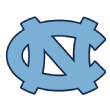
North Carolina Tar Heels: Hubert Davis
Biggest challenge: Win a national championship. I’m aware that’s a lofty goal, but it’s North Carolina, arguably the best job in college basketball and a place where three of their past five head coaches have won national championships. (The other two were gone after three years.) Davis is replacing one of the most successful college basketball coaches of all time in Roy Williams, so there are enormous shoes to fill. Fortunately, the former Tar Heels player and longtime assistant is very familiar with what’s required to win in Chapel Hill.
Early returns: Davis was able to keep most of the roster intact after taking over for Williams. Seven players in last year’s rotation are back, both ESPN 100 prospects who committed to Williams remained in the fold and UNC also landed transfers Justin McKoy (Virginia), Brady Manek (Oklahoma) and Dawson Garcia (Marquette). The Tar Heels are also in great shape in 2022, with three prospects already in the fold — including top-25 recruit Jalen Washington. Carolina should be a top-20 team next season and is ahead of the curve moving forward.

Oklahoma Sooners: Porter Moser
Biggest challenge: Recruiting at a high level. Moser had tremendous on-court success the last four years at Loyola Chicago, going to a Final Four in 2018 and then reaching the Sweet 16 last season. He won at least 20 games each of the past four seasons and went a combined 56-16 in the Missouri Valley over that span. And he did it with a pretty consistent nucleus of players. At Oklahoma, his culture and system should be able to translate — but he will also be tasked with getting talent via the recruiting trail.
Early returns: Moser and his staff went hard at the portal, headlined by breakout NCAA tournament star Tanner Groves from Eastern Washington. And they remain in the mix for Alabama transfer Jaden Shackelford. But they’ve also been active in the 2022 class, bringing big men Cameron Corhen and Dom Campbell on campus for visits, and targeting top-40 recruit Nick Smith.
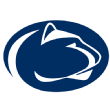
Penn State Nittany Lions: Micah Shrewsberry
Biggest challenge: Be a factor in Philly and the DMV. While Penn State isn’t a Philadelphia school, Philly is the Nittany Lions’ closest fertile recruiting ground. And it’s just as close to some of the more talent-rich areas in the D.C.-Maryland-Virginia region. But it’s been difficult historically for Penn State to consistently get in the mix for high-major prospects from those areas. Pat Chambers did it occasionally, getting a trio of players from powerhouse Roman Catholic in Philadelphia in the 2016 class — including stars Tony Carr and Lamar Stevens — but it didn’t lead to anything more.
Early returns: Shrewsberry landed a high-end transfer in Jalen Pickett (Siena), while also adding double-figure scorers Jaheam Cornwall (Gardner-Webb) and Greg Lee (Western Michigan). And PSU is clearly making a play in Philadelphia and the DMV in 2022. The Nittany Lions are in strong pursuit of four-star guard Jameel Brown out of Philly, as well as ESPN 100 prospects Cam Whitmore and Christian Watson from Maryland and D.C., respectively.
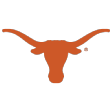
Texas Longhorns: Chris Beard
Biggest challenge: Keep his players happy. Beard hit the ground running after getting the Texas job. He’s landed arguably the best class of transfers in the country, including five top-35 transfers. That’s on top of returning starters Andrew Jones and Courtney Ramey and top-30 recruit Jaylon Tyson — and the Longhorns are still going after Minnesota transfer Marcus Carr, the best guard left on the board. There’s an exorbitant amount of college production on this roster.
Early returns: It remains to be seen, of course, and we won’t be able to judge Beard’s management of his roster until about eight months from now. But it’s always better to have eight high-level, starter-caliber players than it is to have two or three. So I think most coaches on this list would love to be in Beard’s position entering year one.
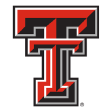
Texas Tech Red Raiders: Mark Adams
Biggest challenge: Proving he can recruit. Adams is considered one of the best defensive minds in college basketball, one of the brains behind Texas Tech’s elite defensive units over the past five seasons. The Red Raiders ranked top-10 in adjusted defensive efficiency in 2018, 2019 and 2020, before finishing No. 18 last season. But Adams hasn’t been known as much of a recruiter — and he’ll need to get talent to Lubbock.
Early returns: Adams and his staff have been busy, first convincing Marcus Santos-Silva to withdraw from the portal, then landing several impact transfers: Davion Warren (Hampton), Bryson Williams (UTEP), Adonis Arms (Winthrop), Sardaar Calhoun (Florida State) and Daniel Batcho (Arizona). And then Terrence Shannon Jr., opted to return to Lubbock at the NBA draft deadline. They’re also still in the mix for transfers Kevin Obanor (Oral Roberts) and Jaden Shackelford (Alabama).
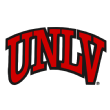
UNLV Rebels: Kevin Kruger
Biggest challenge: Bring stability to the desert. UNLV is widely considered one of the two best jobs in the Mountain West, based on its success historically, its resources and facilities and its history of landing five-star and other highly touted prospects. But the Rebels haven’t been to the NCAA tournament since 2013 and are going on their fifth head coach since 2015. That type of instability is uncommon for good programs.
Early returns: Kruger is looking to turn things around quickly. He convinced leading scorer Bryce Hamilton to withdraw from the transfer portal and return to the Runnin’ Rebels, recruited four transfers from the Big 12 and landed a couple of other transfers — including all-conference guard Mike Nuga from Kent State. There’s enough talent on the roster to be competitive in year one.

Utah Utes: Craig Smith
Biggest challenge: Continue his winning ways. Smith has been one of the most successful coaches in the country over the past several years. He won 48 games his final two seasons at South Dakota, including a regular-season title, then went to two NCAA tournaments in three years at Utah State — and would have gone to a third if not for the coronavirus pandemic. Utah isn’t ready-made to go dancing in year one, but Utah State also went 8-10 in the Mountain West the season before Smith led them to 28 wins.
Early returns: Smith lost his top two players to the transfer portal, with all-conference wing Timmy Allen (Texas) and Alfonso Plummer (Illinois) departing. He brought Marco Anthony and Rollie Worster from Utah State, while also landing high-scoring guard David Jenkins Jr. from UNLV and a pair of underrated guys in Dusan Mahoric (Illinois State) and Both Gach, who started his career at Utah before spending a season at Minnesota.
Other D-I hires
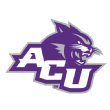
Abilene Christian Wildcats: Brette Tanner
What’s the challenge? Build on the NCAA tournament victory. Joe Golding led the Wildcats to two NCAA tournaments in the last three years, including a first-round win over Texas in March. Tanner helped build that success as an assistant, and now he’ll be expected to continue it.
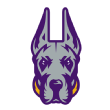
Albany Great Danes: Dwayne Killings
What’s the challenge? Dethrone Vermont. The Catamounts have won at least a share of the America East title the last five seasons, while Albany hasn’t won the league since 2015 — the Great Danes’ third straight NCAA tournament. Killings will want to return the program to that level.

Arkansas-Pine Bluff Golden Lions: Solomon Bozeman
What’s the challenge? Up the tempo. Bozeman comes from Oral Roberts, where Paul Mills has the Golden Eagles pushing the pace and scoring in the 80s. Pine Bluff has consistently ranked in the bottom 100 nationally in tempo the last decade.
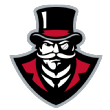
Austin Peay Governors: Nate James
What’s the challenge? Break the Belmont-Murray State hegemony. The Bruins and Racers have dominated the top of the Ohio Valley for the last decade, but Matt Figger had Austin Peay within striking distance in 2019 and 2020. Can James get the Governors over the hump?
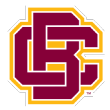
Bethune-Cookman Wildcats: Reggie Theus
What’s the challenge? Balancing jobs. Theus was hired in early July as both athletic director and head men’s basketball coach. Ryan Ridder won a share of the league title in 2018, and positioned the Wildcats as a pretty consistent threat within the MEAC.

Binghamton Bearcats: Levell Sanders
What’s the challenge? Earn the permanent job. Sanders was promoted to interim head coach for the 2021-22 season in March, and likely has one year to prove he deserves the full-time position.

Central Connecticut State Blue Devils: Patrick Sellers
What’s the challenge? Get back to the NCAA tournament. Central Connecticut State made two tournament appearances when Sellers was a CCSU assistant in 2000 and 2002 — the Blue Devils have returned just one time since then.
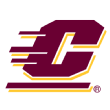
Central Michigan Chippewas: Tony Barbee
What’s the challenge? Get talent to Michigan. While Barbee struggled at Auburn, it’s hard to deny he’s effective at attracting players. He’s recruited well at Memphis and Kentucky, and also was successful as a head coach at UTEP.
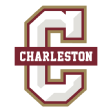
Charleston Cougars: Pat Kelsey
What’s the challenge? Put his stamp on the CAA. Most coaches in the league consider Charleston the best job in the league — but that hasn’t consistently translated to the court. The Cougars have been to one NCAA tournament since joining the CAA in 2013.
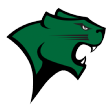
What’s the challenge? Win a WAC game. Well, I guess the biggest challenge is finding a head coach at this point in the offseason — but the Cougars went 0-16 in the league in 2019, 0-14 in the league in 2020 and ended their season before conference play started last year. Their last league win was Jan. 12, 2017 — and they’re expected to leave the league in 2022. They need to get one before they depart.

Delaware State Hornets: Stan Waterman
What’s the challenge?Translate high school success to college. Waterman was one of the best high school coaches in the state of Delaware at Sanford School, winning eight state titles. Delaware State went just 7-37 the last three years in the MEAC.
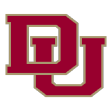
Denver Pioneers: Jeff Wulbrun
What’s the challenge? Earn an NCAA tournament berth. Denver moved up to Division I before the 1998-99 season and has yet to reach an NCAA tournament. Joe Scott had the Pioneers in the hunt, but they dropped toward the bottom of the league under Rodney Billups.

East Tennessee State Buccaneers: Desmond Oliver
What’s the challenge?Continue the trend of successful coaches. Before Jason Shay’s one-year stint in Johnson City, the last five coaches at ETSU had reached the NCAA tournament. Can Oliver start a new streak?

Eastern Illinois Panthers: Marty Simmons
What’s the challenge? Improve 3-point defense. Eastern Illinois has ranked in the bottom 100 nationally in 10 of the 14 years, including below No. 300 seven times. Simmons’ opponents shot lower than 35% from 3 in each of his last three seasons at Evansville (2016-18)

Eastern Michigan Eagles: Stan Heath
What’s the challenge? Make it 4-for-4. While Heath hasn’t had consistent success at any one school, he has guided three different schools (Kent State, Arkansas, South Florida) to the NCAA tournament. Eastern Michigan hasn’t gone dancing since 1998.

Eastern Washington Eagles: David Riley
What’s the challenge? Boosting the appeal of EWU. Both of Riley’s predecessors, Jim Hayford (now at Seattle) and Shantay Legans (Portland), left for jobs that would be considered mild upgrades. Can Riley be a long-term answer for the Eagles?
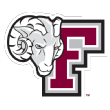
Fordham Rams: Kyle Neptune
What’s the challenge? Break the mold. Fordham has tried everything in its effort to find a winning head coach. Successful mid-major head coaches in the area, successful mid-major head coaches with ties to the area, former NBA guys — but Neptune, ex- of Villanova, is the first high-major assistant they’ve hired in recent history.

George Mason Patriots: Kim English
What’s the challenge? Comb the DMV for talent. English is going to try and keep local talent home for college, and while GMU is going to be battling any number of programs for those prospects, selling the Patriots’ success — including a Final Four in 2006 — will help.
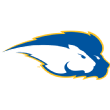
Hofstra Pride: Speedy Claxton
What’s the challenge? Get the Pride over the hump. Hofstra has been to just one NCAA tournament since Claxton left Hofstra as a player in 2000, despite winning the regular-season title multiple times.

IUPUI Jaguars: Matt Crenshaw
What’s the challenge? Emulate his college head coach. Crenshaw was one of the best point guards in IUPUI history under Ron Hunter. Hunter had IUPUI consistently competing near the top of the league during his time with the Jaguars; can Crenshaw bring them back?
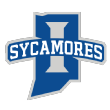
Indiana State Sycamores: Josh Schertz
What’s the challenge? Live up to expectations. Indiana State let go of Greg Lansing despite finishing 11-7 in the Missouri Valley in each of the last two seasons, meaning the Sycamores are hoping Schertz can do better consistently. He went to two D-II Final Fours and won national coach of the year four times at Lincoln Memorial in Tennessee, so it’s not an unrealistic thought.
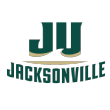
Jacksonville Dolphins: Jordan Mincy
What’s the challenge? End the drought. Jacksonville, a program that went to the national championship game behind star Artis Gilmore in 1970, hasn’t been to the NCAA tournament since 1986.
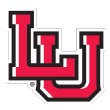
Lamar Cardinals: Alvin Brooks
What’s the challenge? Make an early impact in the WAC. Lamar left the Southland earlier this month to join the WAC, where New Mexico State has been the hunted for most of the last decade. Can Brooks get the Cardinals to make an early push?
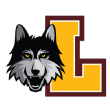
Loyola Chicago Ramblers: Drew Valentine
What’s the challenge? Continue recent success. Loyola Chicago has been one of the most successful mid-major programs in recent years, going to the Final Four in 2018 and the Sweet 16 last season. Valentine coached under Porter Moser for both runs; can he do it on his own?
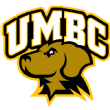
UMBC Retrievers: Jim Ferry
What’s the challenge? Continue to build the program. Ryan Odom put the program on the map when it knocked off Virginia in the first 16-over-1 upset in NCAA tournament history. And the Retrievers won 21 games the following year and a share of the league title last season — but they haven’t been back to the dance. Ferry has to keep UMBC as a consistent factor in the America East.
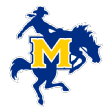
McNeese State Cowboys: John Aiken
What’s the challenge? Develop consistency. McNeese has strung together back-to-back conference seasons above .500 just twice in the last 25 years. The Southland has seen five different programs earn at least a share of the regular-season title in the last five years, so it doesn’t need to be a long rebuild.
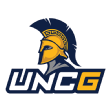
UNC Greensboro Spartans: Mike Jones
What’s the challenge? Prove everyone right. On paper, it’s the perfect hire. UNCG has been one of the best mid-major programs the last five years, winning at least 21 games in each of the last five seasons and going to two NCAA tournaments. And in the last four years, Jones has won the league title twice and finished second the other two times. This should work out.
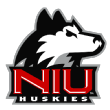
Northern Illinois Huskies: Rashon Burno
What’s the challenge? Make a statement as a college head coach. Burno has been a highly successful assistant coach at Manhattan, Florida and Arizona State — but this is his first college head coaching job. He has strong Chicago-area ties, which should help.

Portland Pilots: Shantay Legans
What’s the challenge? Become relevant in the WCC. No one is expecting Legans to have Portland fighting Gonzaga for the league title. But the Pilots haven’t finished above sixth in more than a decade, so achieving that would be a good first step.
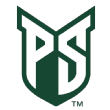
Portland State Vikings: Jase Coburn
What’s the challenge? Get a new car and/or eat three meals. At his introductory press conference, Coburn said his car doesn’t have air conditioning or heat so he can practice mental toughness — and that he doesn’t eat breakfast so he can stay hungry. Hopefully one or the other changes as head coach.
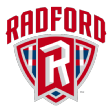
Radford Highlanders: Darris Nichols
What’s the challenge? Bring success back home. It’s a homecoming for Nichols, who grew up in Radford, Virginia and has strong ties throughout the community. The area will be rooting for him to succeed.
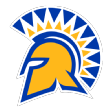
San Jose State Spartans: Tim Miles
What’s the challenge? Colorado State 2.0. In Miles’ first season at Colorado State in 2008, the Rams went 0-16. By the time he left in 2012, the Rams were an NCAA tournament team. Can he replicate that with a different Mountain West team?
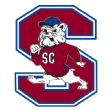
South Carolina State Bulldogs: Tony Madlock
What’s the challenge? Find a consistent system. Madlock has spent the last seven years coaching up-tempo basketball under Andy Kennedy and Penny Hardaway. His predecessor, Murray Garvin, oscillated between some of the slowest and fastest basketball in the MEAC.
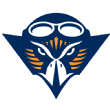
UT Martin Skyhawks: Ryan Ridder
What’s the challenge? Roster continuity. On UT Martin’s website, there’s a team photo of the 2020-21 roster. There are 19 players in the photo. All 19 entered the transfer portal. Ridder is essentially starting from scratch.
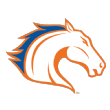
UT Arlington Mavericks: Greg Young
What’s the challenge? Overcome personnel losses. Young should have been walking into an ideal situation. But five players who started at least six games entered the transfer portal. The Sun Belt has had five different regular-season winners in the last five years, so Young can compete if he reloads quickly.
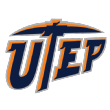
UTEP Miners: Joe Golding
What’s the challenge? Carry over momentum from Abilene Christian. Golding brought the Wildcats to two NCAA tournaments in the last three years, including a win over Texas last season. UTEP hasn’t gone dancing since 2010.

UT Rio Grande Valley Vaqueros: Matt Figger
What’s the challenge? Awaken the sleeping giant. Industry people think UTRGV is a sneaky-good job and it had a surprisingly impressive list of head coach candidates — but the Vaqueros have never been to the NCAA tournament as a D-I team. Figger left a good job at Austin Peay to make the move.
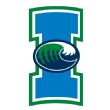
Texas A&M-Corpus Christi Islanders: Steve Lutz
What’s the challenge? Emphasize his in-state ties. Lutz has made a name for himself the last several years at Purdue and Creighton, but he has a ton of experience in the state of Texas. He spent time as an assistant at SMU, Incarnate Word and Stephen F. Austin, and has strong junior college connections. That will be the way he can get talent to Corpus Christi.
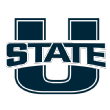
Utah State Aggies: Ryan Odom
What’s the challenge? Figure out the geography. Odom is a North Carolina native who has spent nearly his entire coaching career between Virginia and South Carolina — and he’s replacing Craig Smith, a North Dakota alum who spent time in Colorado, Nebraska and South Dakota before taking over at Utah State.
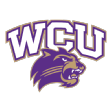
Western Carolina Catamounts: Justin Gray
What’s the challenge? Hit the ground running. Gray only has two years of coaching experience — as an assistant coach at Winthrop — but he’s connected heavily in the region due to his playing days at Oak Hill Academy and Wake Forest, and has some name recognition from his 12 years as a player overseas.
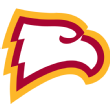
Winthrop Eagles: Mark Prosser
What’s the challenge? Not take a step back. Pat Kelsey led Winthrop to four regular-season titles in the last six seasons and the program has won 12 of the last 22 conference tournaments. Those are pretty big shoes for Prosser to fill.
